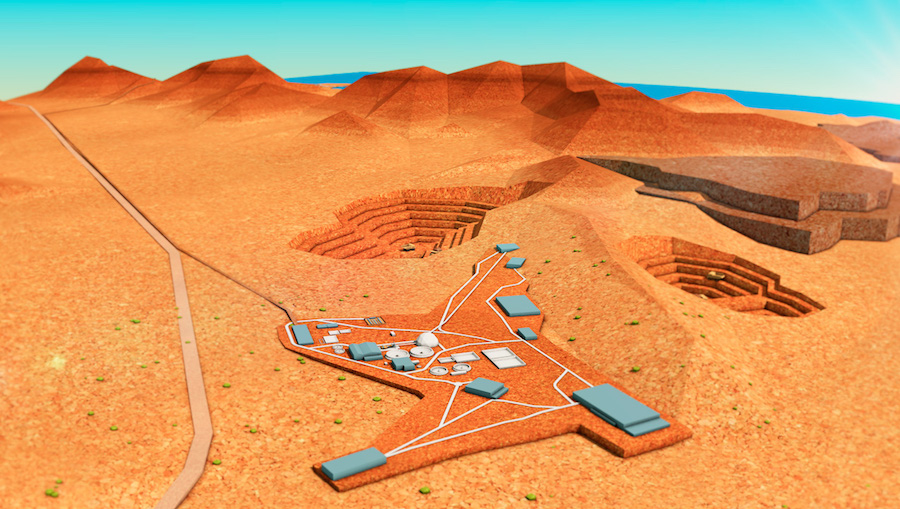
A regional Chilean environmental commission on Wednesday approved Andes Iron’s $2.5 billion Dominga project, giving the green light to the proposed copper and iron mine after years of wrangling in the country’s courts.
The commission had previously rejected the proposal, but in April, an local environmental court breathed new life into the project, ruling the information provided by the company was sound and requiring regulators take another look.
The Coquimbo regional commission on Wednesday voted 11-1 in favor the project, saying its environmental impact study had met all legal requirements.
The copper concentrate and iron mining project would be located about 500 km north of the capital Santiago, and near ecological reserves
The victory marks a rare win for a major new project in Chile, the world’s top copper producer, and provides a fresh prospect for the South American nation’s cohort of sprawling, but aging, mines.
The copper concentrate and iron mining project would be located about 500 km (310 miles) north of the capital Santiago, and near ecological reserves.
Critics say its proximity to environmentally sensitive areas would cause undue damage. Andes Iron, a privately held Chilean company, has long rejected that assertion.
Environmentalists and community activists criticized the decision.
“They don’t want to protect the environment or the communities, they only look after economic interests,” said leftist lawmaker Gonzalo Winter on social media.
Diego Hernandez, president of Chile’s National Mining Society, an industry group that represents the country’s largest miners, said the eight-year permitting process had been “excessive” but praised the final result.
He warned, however, that further legal challenges promised by some critics could still see the project’s progress stymied.
“Surely its opponents will insist on continuing to try to prevent its development,” Hernandez said.
(By Fabian Cambero and Dave Sherwood; Editing by David Evans)
2 Comments
Jack Mcdonner
I agree with those who assert that projects like this will harm the local environment. Time after time we see companies claiming that they will be safe and do things properly and all too many times have we seen spills and irreparable damage done to the local environments. Surely there has to be iron elsewhere that is not going to desecrate an island that serves as a primary nesting ground for animals that have been advertised as important to Chile. And surely the sea shouldnt suffer another spill or leak because greedy companies continue to claim they will be safe and yet cheap out in the end for more money.
Surely jobs and money could start going to more sustainable methods if only companies would stop being lazy and actually invest.
Mark Christensen
I agree, Jack. These companies don’t care about the environment. They only care about making money by getting the most out of these mines, and spending the least amount of money to do so, which means that any ways to protect the environment are ignored.